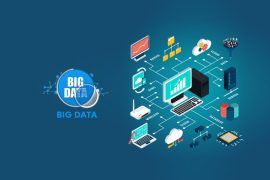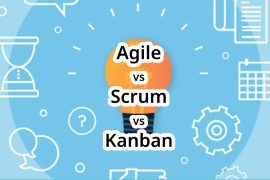Deep Technology, or Deep Tech, is a technology-based company or enterprise that uses ingenious solutions and methods to address crucial issues like climate change, food production, chronic diseases, waste recycling, etc. It emphasizes using new solutions to our society’s most critical problems, including chronic diseases, climate change, clean energy, and food crises. Deep Tech firms are different from traditional ones since, in Deep Tech, technologists and scientists typically team up toward a common goal.
Deep Tech has the potential to bring about real change in the world. It exploits cutting-edge technologies and creates definite societal shifts, making the world a global village. The global pandemic, the need to address the climate crises, and the fast growth of global populations have added pressure on already delicate systems. Deep Tech is created to handle these essential issues.
Table of Contents
The Main Deep Technologies

Deep Tech covers a vast area of technology that isn’t focused on end-user services. These contain:
- Artificial intelligence and machine learning
- Ample data
- Language processing
- Vision and speech algorithms
- Robotics
- Blockchain
- Advanced material science
- Photonics and electronics
- Biotech
- Quantum computing
Three Levels of Deep Tech
What is Deep Tech, and how do you know if the technology is deep? It is a broad term, and much technological progress changes the quality of life.
Space Tech, Computer Vision Systems, Natural Language Processing, and even the most fantastic developments can be considered deep technologies.
However, we must understand that not all state-of-the-art technologies and digital solutions are deep. They might sound or appear innovative and unique, but they may not be deep. Most of the time, these solutions are developed to address issues we already know how to handle or make some quick fixes to existing solutions. Let us discuss the three levels:
Shallow Tech
A technology that offers a better option than what we already know and use widely is not considered as deep. Let us take a hypothetical digital solution to manage an online marketplace with boosted efficiency and profit. This solution might be pretty good, better than any other solution of its kind, and it might offer some excellent features never seen before and be ingenious for what it is. It is important to know whether it impacts the market, the state of technology, and the world at large or not.
Deep Tech
Deep Tech does not cater to immediate fixes and tries to manage the problems on a much deeper level. In most cases, it goes beyond and tries to handle challenges we have not experienced until now.
For example, Deep Tech offers a solution for optimizing traffic, cutting fuel intake, reducing emissions, and decreasing the number of fatal crashes using an autonomous vehicle. One such solution will need technologies like AI, machine learning, computer vision, and IoT. This life-changing technology could improve millions of people’s quality of life and safety. Deep Tech not only offers services but also provides futuristic solutions that solve world problems.
Deeper Tech
Deeper Tech means hardcore Deep Tech. It delivers futuristic technologies. We have an idea but not the expertise and don’t have the required knowledge or resources to build it, for example, human-crewed missions to Mars and spacecraft that would mine asteroids, etc., Neurochips that would restore injured brain cells, real independently thinking AI, quantum computers, and more effective and less harmful cancer treatment techniques. All these are feasible but demand years of technological advancement and investment in billions.
Hardcore Tech seems incredible, but it is something we will most likely achieve in the nearest future. There are continuous innovations, some of which might take decades to launch, and these technologies will change our lives in the future and might change the whole world.
Top Five Use Cases for Deep Tech
Many sectors could profit from deep Tech’s enabling capabilities, and we’ve focused on some of the most critical areas here.
According to the Boston Consulting Group, the health market in life sciences profited the most from deep tech startups (51%) in 2020. We’ve already seen substantial progress in precision medicine because of the fast improvements in healthcare software development services. This boosted technologists and scientists to collect factual health-based data and design new tailor-made treatments. Deep Tech in this field includes:
- AI diagnosis.
- Wearables for health tracking and diagnostics.
- E-records that allow the medicare sector to personalize therapies.
- Virtual appointments.
1. Processing and Computing
We have seen that the computer has not changed much in its basic design since its invention. The same computer controls the world’s current computing needs, from placing an online grocery order to comprehending complex datasets. Computers can be custom-built to handle specific areas or problems, and Deep Tech can help hugely in this.
Deep Tech could advance computing and processing capabilities. The need is to adopt other cutting-edge technologies, like machine learning, which need computing and data processing. Moreover, the energy required by the existing computers makes them unsuitable in the long run.
2. Food and AgriTech
One of the most significant issues that the world face today is Food insecurity. There is a pressing need for Deep Tech solutions to find an alternate solution, and there is a need to move from conventional farming techniques to more sustainable production methods. Innovations in food and agriculture are exploiting technologies like big data, blockchain, and Biotech to develop interconnected farming systems. With exact predictive abilities like allowing farmers to cultivate and reap their crops for maximum productivity and yield.
According to The Business Research Company, Synthetic Biology is another edge being researched and predicted to reach $27 billion by 2023. This will rapidly expand natural systems and create new, more sustainable resources.
3. Energy and Clean-tech
The energy market needs a radical change. Deep Tech companies have already started using energy software development and futuristic technologies to explore hydroelectric power generation or to raise the effectiveness of wind and solar energy with the IoT. We know storage is one of the main problems of renewable energies. Big players are trying to address the problem with the finest batteries and optimizing their usefulness with Cloud-based technology.
4. Infrastructure
With rapid population growth, there is a growing need for infrastructure to support it. Transport, housing, sewer system, power plants, and supplies are essential. Almost every country’s government tries to reduce carbon emissions and promote sustainable solutions to population growth.
Also, with the latest G20 insights, global pandemics like COVID-19 will become more frequent as we creep further into natural habitats. So there is a need to be more sensitive towards the environment and build a new world that supports a better quality of human life. We require massive collective action from urban planners and technologists and substantial investment.
G20 advises that nations use public-private partnerships (PPP) with Deep Technologies and green finance.
The Challenges for Deep Tech
- R&D uses more time and consumes more resources to set up.
- Deep Tech companies may find challenges to secure investments.
- Angel investors may find Deep Tech hard to understand, and it’s potentially far-fetched.
- Deep Tech’s hypothetical nature could mean that development trials may fail without a proper technical feasibility study. It is trying to achieve something that has been hitherto unachievable.
- Investments in traditional Tech have been at their peak, and digital evolution is gaining pace. Reports show that a quarter of all European venture capital investment channeled into deep technologies, including implementing innovative blockchain business ideas, AI, robotics, and quantum tech, are gaining precedence.
Takeaways:
- Impact: Deep Tech innovations are very revolutionary and upset the current market or create a new one. Innovations based on Deep Tech change lives, economies, and societies.
- Time & Scale: Deep Technology takes longer to design the technology and reach the market ready to accept it. It is way ahead of shallow technology development (like mobile apps and websites, etc.). It took decades for AI to develop, and it still has blocks.
- Capital: Deep Tec requires huge capital investment funding for research and development, prototyping, validating hypotheses, and technology development. There is a need to make Deep Tech a more discussed topic.
Therefore, Deep Tech, by its vision, addresses bigger societal issues and possibilities, such as climate change, food shortages, and alternative energy and robotic healthcare solutions. There is still not any in an end-product for a Deep Tech user, but a future solution that will change the entire world scenario.
Deep Tech’s focus is to help find new solutions that solve society’s biggest issues, like chronic diseases, climate change, clean energy, and food production. Deep tech firms differ from traditional tech companies since technologists and scientists unite their studies toward a common goal.
Technology is ever-growing. Scientific findings and engineering are evolving virtually in every industry now. Just a few years ago, we didn’t even know how to categorize a startup developing AI technology to cure a deadly disease, but now that’s a reality.






